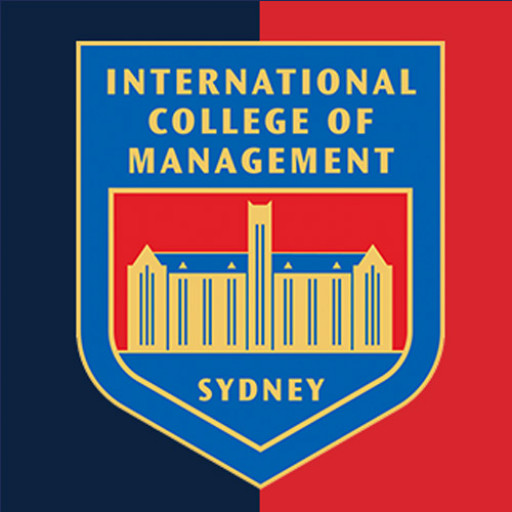The Bachelor of Laws (LLB) at Swinburne University of Technology is a comprehensive undergraduate program designed to prepare students for a dynamic career in the legal profession. This degree offers a rigorous curriculum that combines foundational legal principles with practical skills, enabling graduates to understand, analyze, and apply the law effectively across a range of contexts. Through a blend of theoretical knowledge and hands-on learning experiences, students will explore various areas of law, including criminal law, contract law, constitutional law, and administrative law, among others. The program emphasizes critical thinking, ethical judgment, and oral and written advocacy skills, equipping graduates to navigate complex legal challenges confidently. Swinburne’s innovative teaching methods integrate case studies, legal research, and simulation exercises, providing a realistic understanding of how the law functions within society. Students also have opportunities for work placements and internships, fostering industry connections and practical insights that enhance employability upon graduation. The program prepares students for diverse career pathways, including legal practice, policy development, compliance, and consulting roles. Additionally, students who wish to pursue further legal qualifications or specializations can leverage the degree as a stepping stone toward postgraduate studies in law or related fields. With a focus on developing both academic excellence and professional readiness, the Bachelor of Laws at Swinburne ensures graduates are well-equipped to contribute meaningfully to the legal sector and broader society. The degree adheres to the highest academic standards, maintains accreditation with relevant legal bodies, and reflects the evolving needs of the legal industry, making it an excellent choice for aspiring legal professionals seeking a future-proof qualification.
The Job of Laws Suits the academic requirements for Entry to practice as an Attorney at the Victorian and Australian Federal legal systems According to the Victorian Legal Admissions Board. Please be informed that non-academic requirements must also be suited to admission to rehearse and no law degree enables graduates to practise direct a way.
- Year 12 or equivalent
- VCE prerequisites: Units 3 and 4: a minimum study score of 25 in English (or equivalent) or 30 in English (EAL)
- And Units 4 and 3: a minimum study score of 20 in virtually any Mathematics. Additional performance criteria and prerequisite requirements may also apply. Completion or partial completion of a qualification. English language requirements - satisfactory conclusion of a few of the following: Swinburne's English for Academic Purposes (EAP 5 high level degree ) with overall 70 percent, all skills 65%
- Minimum IELTS overall band of 6.5 (Academic Module) with no individual band below 6.0
- TOEFL iBT (web-based ) minimum score of 7-9 with a reading band a minimum of 18 and writing band a minimum of 20
- Pearson (PTE) minimum score of 5-8 (no real skills significantly less than 50)
- every other equivalent assessment of English language competence. Note: A requirement for several courses, the Pearson Test of English Academic (PTE Academic) can now be done online campus in Hawthorn.
The Bachelor of Laws (LLB) and Bachelor of Aviation Management programs at Swinburne University of Technology offer multiple financing options to support students throughout their studies. Domestic students are eligible for government loans such as the Higher Education Loan Program (HELP), which includes HECS-HELP and FEE-HELP schemes. These loans allow students to defer their tuition fees, making higher education more accessible and affordable. International students, on the other hand, are responsible for paying their tuition fees upfront or via payment plans negotiated with the university. Swinburne also offers scholarships and bursaries based on academic merit, financial need, or specific criteria such as lifetime achievement, diversity, or industry partnership. These financial aid options can significantly reduce the financial burden on students and provide encouragement for academic excellence.
In addition to government loans and scholarships, students may consider external financing sources, including bank loans or private funding, although these are not university-managed options. The university provides guidance on financing and financial planning, encouraging students to explore all available options and plan their finances accordingly. For international students, the university often assists with financial planning and may offer scholarship programs specific to international applicants.
The cost of study varies depending on whether the student is domestic or international, the specific degree, and the duration of the program. Students should budget for tuition fees, living expenses, textbooks, insurance, and additional study-related costs. The university recommends early planning to ensure sufficient funding during their studies. Financial support services at Swinburne are available to assist students in understanding their options, managing budgets, and navigating the process of applying for loans or scholarships. Overall, the combination of government support, scholarships, payment plans, and external funding sources enables students to pursue their degree in Law or Aviation Management with manageable financial arrangements, fostering an environment conducive to academic success and professional development.
The Bachelor of Laws (LLB) at Swinburne University of Technology offers students a comprehensive legal education designed to prepare them for a variety of careers within the legal field and related industries. The program provides a strong foundation in legal principles, including areas such as contract law, criminal law, constitutional law, human rights law, and legal research and writing. It combines theoretical understanding with practical skills, enabling graduates to interpret, analyze, and apply legal concepts effectively. The curriculum is structured to develop critical thinking, ethical judgment, and effective communication, essential qualities for success in legal practice and other professional settings. Additionally, the program incorporates opportunities for practical experience through internships, moot courts, and industry projects, fostering real-world skills and connections. Students are encouraged to explore specialized areas such as environmental law, international law, or commercial law through elective units. The degree is designed to meet the requirements for admission to legal professional training and provides a pathway to roles such as legal advisor, policy analyst, or compliance officer. Swinburne's flexible delivery options include on-campus and online study modes, accommodating diverse student needs. The university’s focus on innovation, technology in law, and interdisciplinary approaches ensures graduates are well-prepared to adapt to the dynamic legal landscape of the 21st century.
The Bachelor of Aviation Management at Swinburne University of Technology aims to equip students with the technical knowledge and managerial skills necessary to succeed within the aviation industry. This program covers core areas such as aviation safety, airport operations, airline management, air traffic control, and aviation law. Students gain insights into the operational, commercial, and regulatory aspects of aviation, preparing them for leadership roles in airports, airlines, and related organizations. The program emphasizes practical learning through simulation exercises, industry projects, and internships, providing real-world experience that enhances employability. Courses focus on developing skills in leadership, strategic planning, risk management, and communication, alongside technical competencies. Swinburne’s innovative approach includes integrating emerging technologies such as automation, digital systems, and data analytics relevant to aviation management. The program is designed with industry input to ensure relevance to current and future industry needs. Students have opportunities to participate in industry placements and networking events, fostering professional connections. Upon completion, graduates are prepared for careers in airport management, airline operations, aviation safety, regulation, and consultancy. The program offers flexible study options, including online and on-campus formats, catering to a diverse student demographic.
(If more specific details are needed, refer to official Swinburne University program descriptions for the most accurate and current information.)









